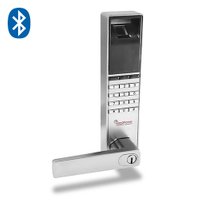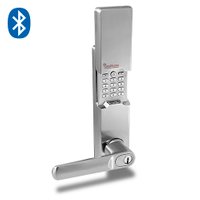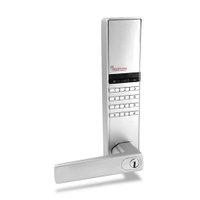BIOMETRICS
The word biometrics (Greek origin) has been used since the beginning of the 20th century to describe the development of mathematical and statistical methods applied to biological research.
Biometrics is a science that deals with the mathematical-statistical study of variation in the characteristics of organisms, e.g. differences in fingerprints or in the iris of the eye, to be used for reliable identification. This knowledge is already in use today and is, amongst other things, used to identify people because humans have a natural 'code' which makes us all unique, and this secures a correct identification.
In general, biometrics is referred to as "the next generation of identification" and not a day goes by without news of different enterprises using this technology, and it is expected that these enterprises will amount to many new marketable products within a timeframe of 5, 10 or 15 years.
Biometrics is a science and a technology used for authentication (identification/verification) of a human based on a person's own (unchangeable) physiological or behavioural characteristics. Biometrics is viewed by many experts as the most innovative IT technology in the world in the last 10 years.
Today, the term biometrics describes the technology that stores and recognizes personal characteristics like fingerprints, iris scan, hand scan, speech and body recognition, facial recognition, etc. Biometrics is primarily used for locks and access control, but it is also used for PC, network, intranet, domain admission, logon to applications, data/file protection, remote control, transaction protection, etc.
A person's fingerprint is completely unique and relatively easily transformed into a mathematical algorithm. The fingerprint is the safest, cheapest and most reliable biometric 'key' for the company's employees or the individual family members.
And you always have your biometrical key with you which will make keys and admission cards obsolete.
Approximately 65% of the biometrical products, currently on the market, use fingerprints. The other biometrical methods are not adequately developed and typically have a high percentage of error, are too slow and much too expensive.
The management of Birkegaarden A/S expects that biometrics will shortly become a natural part of everyday life as a replacement for keys, codes, cards and chips.








